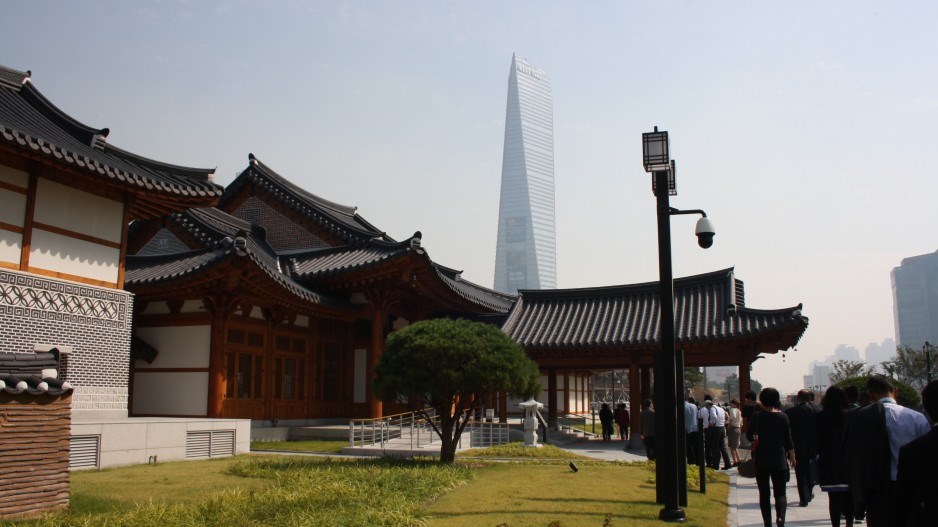“Look, there’s a Mercedes,” says Alan Smith, pointing beyond a window inside a swanky Seoul hotel lobby.
The B.C. businessman said he would never spot foreign cars when he began coming to South Korea seven years ago to break into a market he sees as the most innovation-friendly in the world.
“Maybe a Lexus,” said the founder of Vancouver-based Vesta Health Systems, who was attending Foreign Investment Week (FIW) in Seoul October 13 to 15.
But as South Korea has spent the past decade pursuing what one Chinese official characterized as an “aggressive” free trade agreement (FTA) strategy, the country’s once-insular nature is giving way.
And Canadian investors like Smith are taking notice.
Guy-yong Lee, a researcher at South Korea’s Ministry of Science, ICT and Future Planning, told foreign reporters attending FIW his country faced a dilemma as the economy slowed down in the 2000s due to a “narrow domestic market” – albeit one that includes more than 50 million people.
Since 2003, when it signed its first FTA with Chile, South Korea’s total trade volume has risen to US$595 million from US$373 million, according to data from the Korea International Trade Association.
And over the last decade, South Korea has created the world’s third-largest FTA network, connecting to 73.5% of global GDP. In 2008, the World Bank ranked South Korea 23rd in terms of ease of doing business. By 2015, it ranked fifth in the world.
Canada’s own FTA with South Korea went into effect in January.
Canada’s Department of Foreign Affairs, Trade and Development said the agreement would increase Canadian exports to South Korea by 32% and add $1.7 billion to the economy.
Much of that benefit is contingent on Canada’s burgeoning liquefied natural gas sector. Meanwhile, the domestic auto industry criticized making a deal with a nation it says will always be dominated by the likes of Hyundai and Kia.
“Our strategy is definitely FTA,” Kiwon Han, commissioner of the country’s Invest Korea foreign investment promotion agency, told investors and foreign journalists during an FIW panel.
He said Korea is benefiting significantly from agreements allowing raw materials to come in from FTA co-signers and then leave the country with no tariffs attached. All countries win, Han said.
While Wang Cong Rong, a commercial counsellor at the Chinese Embassy in South Korea, described Seoul’s FTA strategy as “aggressive,” he acknowledged the growth potential for trade between China and South Korea is “indeed very” big once an FTA is ratified next year.
But Smith said the effects of this FTA strategy won’t be spread out evenly across all industries.
His own life sciences company likely won’t receive any benefits from the dropping of tariffs of Canadian products going into Korea.
Instead, it’s mostly Canada’s natural resources sector that will profit the most.
“The FTA going out from Korea might mean that when we finally get going on manufacturing that I might be more inclined to do it from Korea,” Smith said, adding labour still isn’t very cheap in South Korea compared with Canada.
And despite the opening up of the Korean market the FTA provides, he said the country still remains culturally insular. If he had to do it again, he wouldn’t have tried to make any deals without a person by his side who speaks English and Korean fluently.
“And they have to be the child of a Korean-born person or they have to get the culture, because the culture is extraordinarily different,” Smith said.
SMG Asset Korea manager Hoon (Luke) Choi, who grew up in both South Korea and Canada, agreed with Smith’s cultural assessment.
He splits his time between Vancouver and Seoul and said foreign investors have few hopes of succeeding unless they’re partnered with someone who understands the culture.
“It’s the No. 1 priority,” he said.
“If any Canadian company comes to Korea, they should have someone like me; otherwise they’re going to have difficulty.”
@reporton




